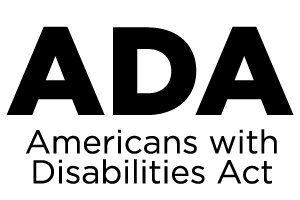June 20, 2025
“Ability is what you’re capable of doing. Motivation determines what you do. Attitude determines how well you do it.” This quote from my Notre Dame football coach, Lou Holtz, has not only resonated with me through all aspects of my life, but it has guided me in coaching employees for success. Indeed, in playing for Coach Holtz in the late 1980s and winning a national championship with him, I learned quite a bit about leadership and accomplishing goals. The following takeaways that I learned as a young adult are what I have implemented into my professional life. While the objectives of leadership — driving performance, fostering engagement, and cultivating growth — remain constant, the ways in which we motivate our teams have evolved with each generation. What inspired Baby Boomers may not resonate with Millennials or Gen Z. Understanding these generational shifts is key to effective leadership today. In today’s work environment, coaching employees is not just a leadership tactic — it’s a strategic imperative. Remote work has reshaped communication, and employee expectations have shifted toward development and purpose. Coach Holtz’s quote serves as a simple but powerful framework for effective coaching: leaders must recognize ability, fuel motivation, and shape attitudes to bring out the best in their teams. Recognizing Ability: Know What Your People Can Do The first step in coaching is understanding each employee’s strengths and capabilities. This means going beyond résumés and job descriptions to truly observe how individuals think, solve problems, and interact with others. When leaders understand what their team members are capable of, they can align tasks and goals in ways that challenge without overwhelming. Coaching helps bridge the gap between raw potential and real-world performance. Inspiring Motivation: Help People See the Why Motivation is deeply personal. What drives one employee may not matter to another. Effective coaches take time to learn what inspires their team — whether it’s growth opportunities, recognition, or a sense of purpose. By connecting everyday work to larger goals and company values, leaders can unlock intrinsic motivation. Motivated employees are more likely to take initiative, push past obstacles, and grow within the organization. The Leader’s Role in Shaping Attitude Attitude determines how work gets done. A coach’s role is to cultivate a culture where positivity, resilience, and accountability thrive. This involves addressing challenges by considering setbacks as chances for learning and demonstrating emotional intelligence. Leaders who coach with empathy and encouragement set the tone for how their teams respond to pressure, change, and collaboration. From Feedback to Forward Momentum Coaching isn’t about occasional feedback — it’s about ongoing dialogue. Regular check-ins, clear communication, and actionable suggestions create an environment where employees feel supported and empowered. Effective coaching helps people take ownership of their growth, rather than waiting for direction. It turns feedback into fuel for development. Coaching in the Modern Workplace Hybrid teams, technological shifts, and generational changes have made coaching even more essential. Today’s leaders must be more intentional about building connections and offering guidance, especially when face-to-face time is limited. Virtual coaching tools can help, but the foundation remains the same: genuine curiosity, active listening, and consistent support. The Lasting Impact of a Great Coach Coaching done well builds more than just stronger employees — it builds stronger people. When leaders take the time to develop ability, ignite motivation, and nurture the right attitude, they create lasting value for individuals and the organization. As Coach Holtz wisely reminds us, performance is not just about what you can do — it’s about how and why you do it. Derek Brown is chief administrative officer at the Royal Law Firm, LLP and a retired, nine-year NFL veteran who also gives speeches on leadership and teamwork to accomplish goals. The Royal Law Firm LLP, is a woman-owned, women-managed corporate law firm certified as a women’s business enterprise with the Massachusetts Supplier Diversity Office, the National Assoc. of Minority and Women Owned Law Firms, and the Women’s Business Enterprise National Council. If your business has any questions on this topic or any other matters, please do not hesitate to contact the attorneys at The Royal Law Firm at 413-586-2288. Derek Brown wrote this article which was featured in BusinessWest. Click here to visit their website.









